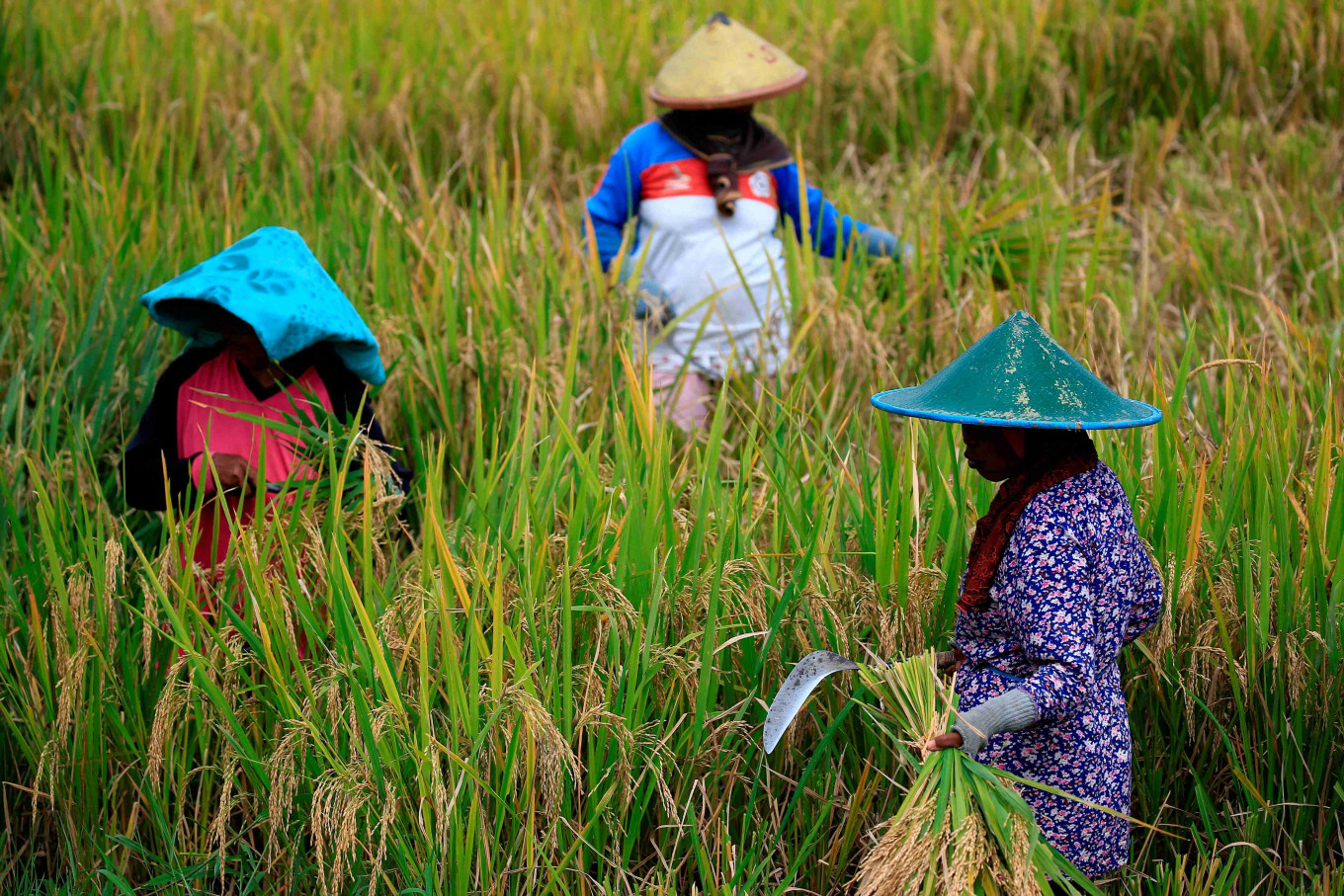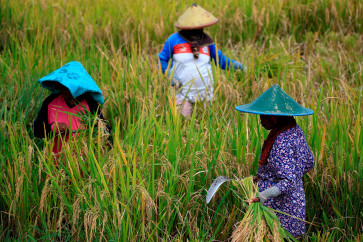Popular Reads
Top Results
Can't find what you're looking for?
View all search resultsPopular Reads
Top Results
Can't find what you're looking for?
View all search resultsHow land redistribution can bolster Indonesia’s food security
Studies have shown that small-scale farmers globally continue to produce 35 percent of the world’s food while utilizing only around 12 percent of agricultural land.
Change text size
Gift Premium Articles
to Anyone
The government continues to be resolute in implementing land redistribution as a concerted effort to address social and economic disparities. Despite the earnest efforts, there is still little attention to the fact that land redistribution could also contribute greatly to achieving food security.
In Indonesia, land redistribution revolves around the equitable allocation of state-controlled land designated for reform initiatives. One of the significant objectives is to empower small-scale farmers who meet the eligibility criteria outlined in Article 12 of Presidential Regulation No. 86/2018 on agrarian reform.
Aligned with the National Medium-Term Development Plan (RPJMN) for 2015-2019 and 2020-2024, land redistribution aims to cover 4.5 million hectares. Hence, this program undoubtedly brings hope to small-scale farmers who often struggle due to limited land holdings and face tenure conflicts while they are expected to produce abundant food.
Small-scale farmers play a pivotal role in Indonesia's food production. Yet, they represent the largest segment of food-insecure individuals and make up the majority of the impoverished and hungry population.
According to the Agricultural Census (ST) 2023 conducted by Statistics Indonesia (BPS), the number of subsistence farming households, who own land less than 0.5 ha, increased from 14.25 million in 2013 to 16.89 million in 2023. This trend seems to contradict the ongoing efforts of land redistribution, which ideally result in a decrease in the number of small-scale farmers as they should have larger farming plots.
Land tenure serves as the foundation of any food system. When access and usage rights are limited, agricultural and food systems become compromised. This can result in the exclusion of vulnerable groups and unsustainable patterns of food production, distribution and consumption.
Small-scale production systems have received serious attention worldwide. Numerous studies have shown that small-scale farmers globally continue to produce 35 percent of the world’s food while utilizing only around 12 percent of agricultural land.



















